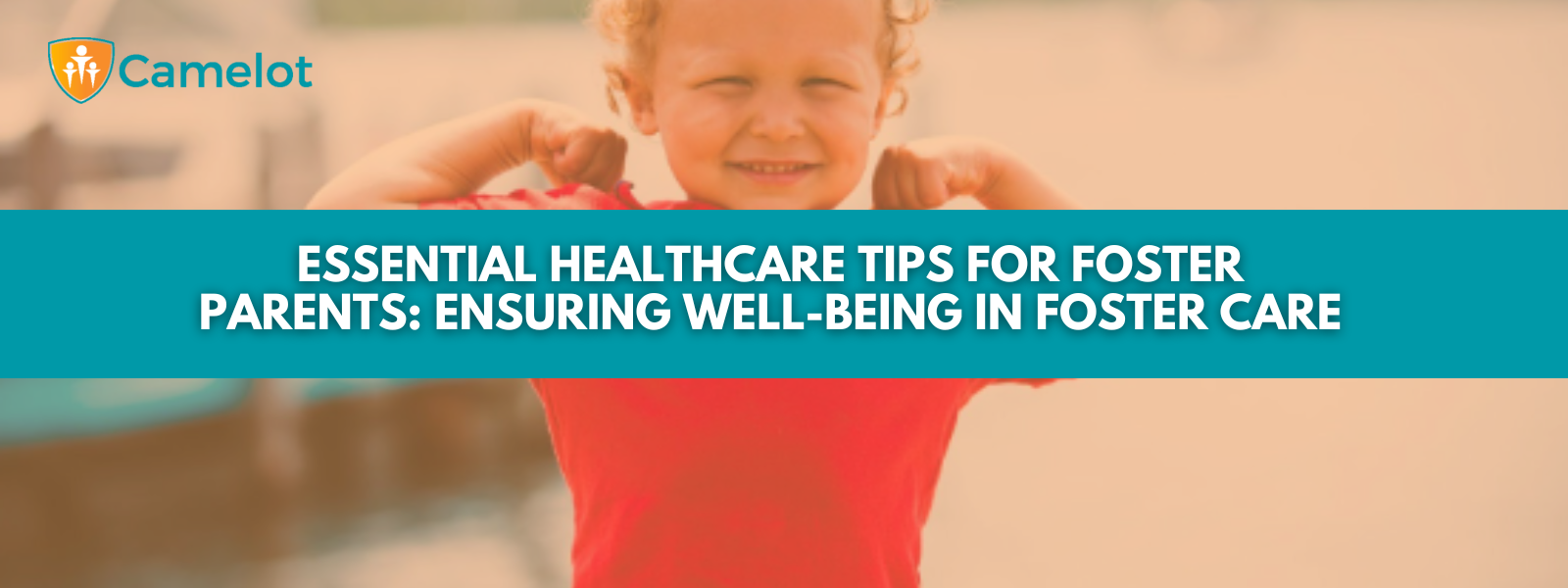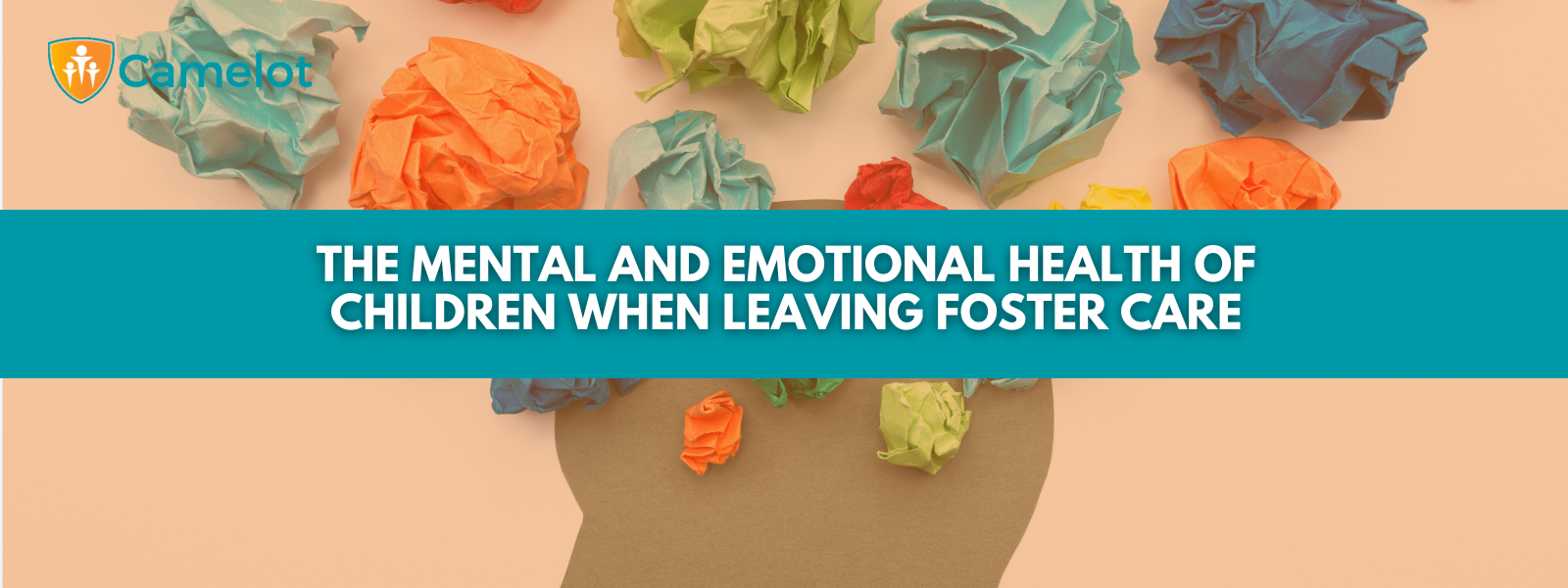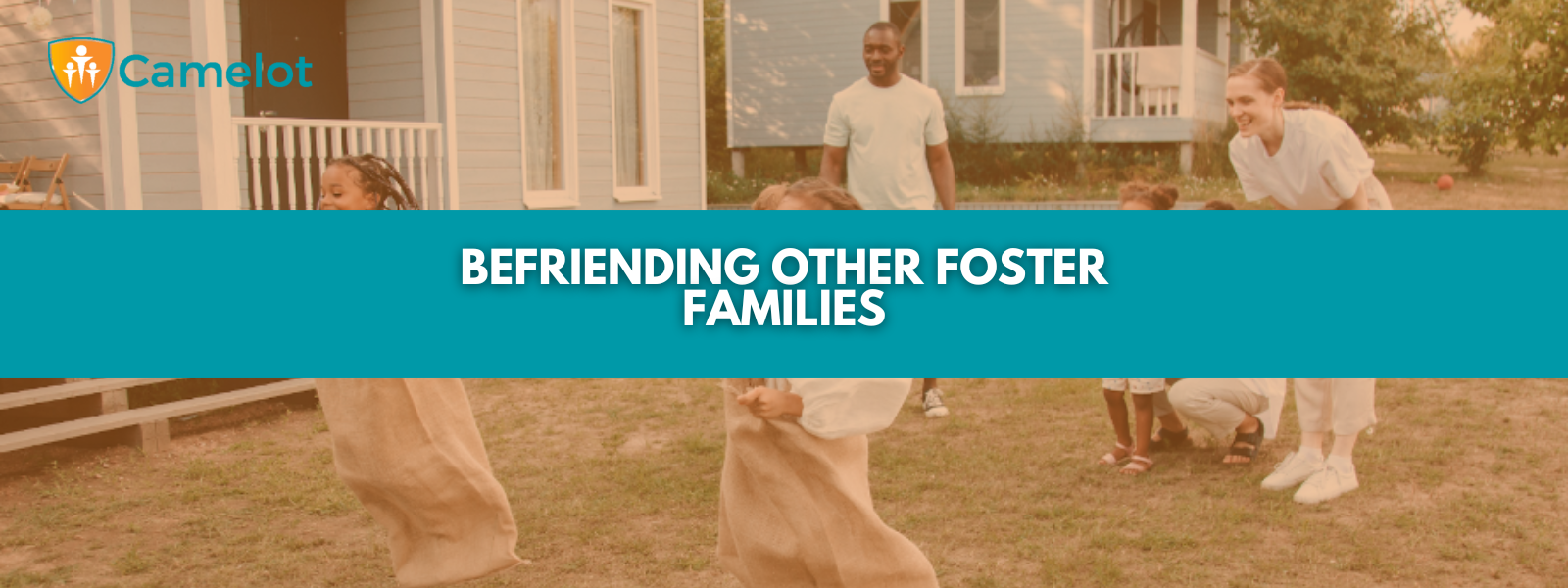Back to School Tips for Foster Parents
Back to School Tips for Foster Parents

The back-to-school season is an exciting time for foster families. It is filled with new beginnings and opportunities. However, this time of the year can also bring unique challenges and considerations for them. As a foster parent, you play a crucial role in supporting the education and well-being of the children in your care.
Read on to explore key tips to help you successfully navigate the back-to-school season and create a supportive environment for your foster children's educational journey.
Prepare for the School Year
Preparing for the upcoming school year is crucial to ensure a smooth transition and provide the best educational experience for the child in your care. Early organization of all necessary information and documentation is vital to minimizing stress and setting the child up for success.
Tips for a Smooth Transition
You can consider the following tips to stay organized and ensure a seamless transition to school:
- Create a Back-to-School Checklist: Develop a checklist that includes scheduling medical appointments and purchasing school supplies to help you stay organized and ensure that everything runs smoothly.
- Establish a Routine: Start implementing a consistent daily routine in the weeks leading up to the school year. This will help the child adjust to the structure and expectations of school life.
- Gathering Necessary Documents and Information for Enrollment: Enrollment requirements may vary depending on the school district and state regulations. As a foster parent, ensure you have the following documents and information ready:
- Proof of Residency: Documents such as utility bills or lease agreements will help establish proof of residence within the school's attendance boundaries.
- Immunization Records: Obtain up-to-date immunization records for the child. If necessary, consult with the child's caseworker or healthcare provider to ensure compliance with state requirements.
- Birth Certificate and Social Security Number: It’s also better to have a copy of the child's birth certificate and Social Security card since these documents may be necessary for enrollment and identification purposes.
Establish Open Communication
Building a positive and open line of communication with the school and relevant professionals is crucial to navigating the back-to-school season successfully. This will ensure that you are well informed about your foster child's education and that the school knows their unique circumstances and needs. Here are some tips to help you establish effective communication:
Introduce Yourself as a Foster Parent
When communicating with school administrators, teachers, and staff, it is important to introduce yourself as a foster parent. Begin by explaining your relationship to the child in your care, as it will help create a clear understanding of your role in the educational process and foster collaboration.
Share Relevant Information
Provide the school with relevant information about your foster child's background and any specific needs they may have. This could include details about their history, previous school experiences, any special accommodations or services they require, and any significant events or transitions they have recently gone through. Sharing this information will help the school better understand your foster child's needs and provide appropriate support.
Be Proactive
Take the initiative to contact the school and schedule a meeting or phone call with your foster child's teacher(s) and other key personnel. This proactive approach demonstrates your commitment to their education and establishes a foundation for ongoing communication throughout the school year. During these conversations, inquire about the school's policies and procedures, as well as the best methods to stay in touch.
Attend Parent-Teacher Conferences
Make it a priority to attend parent-teacher conferences. These meetings offer valuable opportunities to meet your foster child's teachers, discuss their progress, and address any concerns. By actively participating in these conferences, you can show your involvement to your child and the school.
Communicate Regularly
Maintain regular communication with the teachers and school staff. Stay informed about their academic progress, behavior, and any challenges they may be facing. Establish a communication routine, such as weekly or monthly check-ins via email or phone calls, to ensure that both parties stay informed and address any issues promptly.
Be Approachable and Supportive
Create an environment where teachers and school personnel feel comfortable approaching you with any concerns or updates regarding your foster child. Be open to their feedback and suggestions; they have valuable insights into your foster child's educational journey.
Respect Privacy and Confidentiality
Understand the importance of privacy and only share confidential information about your foster child with relevant school personnel on a need-to-know basis. Ensure that any documentation or information is securely stored and handled appropriately.
Collaborate with School Services
Work with school counselors, social workers, and special education coordinators if applicable. These professionals can provide additional support and resources for your foster child's specific needs.
Effective communication is critical to building strong relationships with the school and advocating for your foster child's success.
Create a Positive Learning Environment at Home
As a foster parent, you have a significant influence on the educational experience of your children. Since this influence plays a huge role in how well your foster children perform academically and in other areas, it is important to create a supportive environment. You can promote a positive learning environment at your home by:
Establishing Routines
Creating consistent daily routines that include dedicated time for homework, study, and extracurricular activities. Predictable patterns help foster children feel secure and develop good study habits.
Encouraging Educational Engagement
Actively engaging in your foster child's education by attending parent-teacher conferences and extracurricular activities will help. You can show interest in your child's schoolwork, provide guidance, and celebrate academic achievements.
Providing Educational Resources
Ensuring access to educational resources, such as books, educational apps, and online learning platforms, will inculcate an emotion of trust in your child. You can also create a home environment that encourages reading, exploration, and intellectual curiosity.
Collaborate with the Caseworker and Care Team
Collaboration with the child's caseworker, therapist, and other care team members can help boost the child's school life and overall well-being. By working together, you can provide a comprehensive support system that addresses the child's needs. Here's why collaboration is essential:
Holistic Understanding
Each care team member brings valuable insights and expertise so that you can get a holistic understanding of the child's background, experiences, strengths, and challenges. Everyone can work together to develop appropriate strategies and interventions by sharing information and perspectives.
Coordinated Support
Collaboration ensures that all parties agree on the child's educational needs, goals, and progress. It enables the development of a coordinated support system where everyone understands their roles and responsibilities in promoting your child’s academic well-being.
Consistency and Continuity
By partnering with others, you can ensure consistency and continuity in your child's care. Sharing information and working together can make transitions between home, school, and therapy sessions smoother, allowing for better integration of supports and interventions.
Finding Relevant Organizations and Support Groups
Fostering can be stressful, and many foster parents may feel isolated or overwhelmed by their responsibilities. To seek support and guidance during those times, you can explore the following avenues:
Foster Care Agencies
Local foster care agencies often provide support services, resources, and training opportunities for foster parents like yourself. Contact your local care center to inquire about available programs or ask for recommendations.
Educational Advocacy Groups
Look for educational advocacy groups that support foster children's educational needs. These groups may guide navigating the education system, advocating for educational rights, and accessing appropriate resources.
Online Communities and Forums
Join online communities and forums specifically for foster parents. These platforms provide opportunities to connect with others, share experiences, and seek advice on various aspects of fostering, including education.
Professional Associations
Consider joining professional associations or networks related to foster care. These organizations often provide access to educational conferences, publications, and resources.
Navigating back to school as a foster parent can be exciting and challenging.
Camelot Care Center understands the unique needs of foster parents. With our extensive expertise and dedication to improving the educational outcomes of foster children, our intensive counseling, outpatient therapy, and other services can greatly benefit you.
We understand the significance of social and emotional well-being in a child’s educational success and recognize that they may face unique challenges in navigating new social dynamics. That’s why we provide strategies and support to address these challenges.
Our expertise, collaborative approach, and commitment make us invaluable to foster parents who need assistance with the educational journey. Remember, you are not alone. With our proper support, guidance, and resources, you can provide your foster child with the stability, continuity, and opportunities they deserve.
Contact us
today to embark on a path toward educational success for your foster child.





Camelot Care Centers






